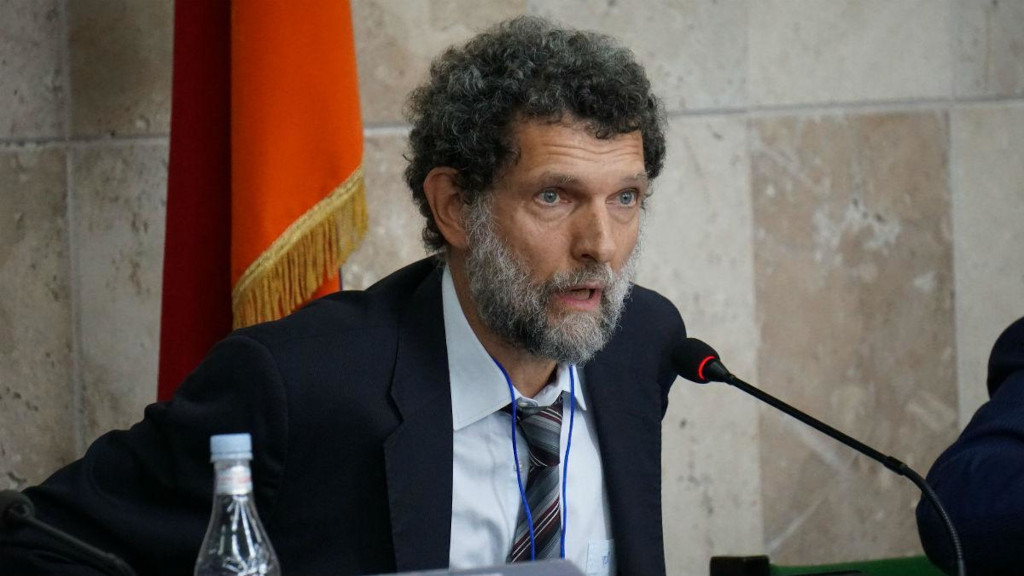After the Turkish Justice Ministry rejected jailed businessman Osman Kavala’s fourth request for a retrial last week, one of his lawyers once again petitioned the ministry on Monday, asking it to assert its authority for a retrial, the Gazete Duvar news website reported.
Kavala, who has been imprisoned since November 2017 on charges related to the 2013 Gezi Park protests, was sentenced to life in prison in 2022 for allegedly attempting to overthrow the government of President Recep Tayyip Erdoğan. His conviction was upheld by the Supreme Court of Appeals in September 2023.
The latest petition by Kavala’s lawyer, Hilal Zengin, emphasizes the need for “legal normalization” in Turkey.
Zengin argues that Kavala’s actions did not constitute organizing or financing mass protests and that records from the Financial Crimes Investigation Board (MASAK) support his innocence. The lawyer also insists that the National Intelligence Organization (MİT) is best positioned to assess Kavala’s situation accurately.
Zengin’s petition invokes Article 311 of the Turkish Code of Criminal Procedure (CMK), which allows for retrials based on new events or evidence that could potentially lead to a lighter sentence or acquittal. The lawyer highlights the 2017 constitutional referendum, which transitioned Turkey from a parliamentary system to a presidential one, as a significant new development.
Kavala’s previous requests for retrial were denied by the İstanbul 13th High Criminal Court and subsequently by the Justice Ministry. The ministry’s refusal to exercise its authority under Article 309 of the CMK dashed hopes for a retrial despite the political shifts in Turkey’s governance structure.
Zengin’s plea underscores that the shift to the presidential system means the previous charges against Kavala, which were based on an alleged attempt to overthrow the parliamentary government, are now obsolete. Zengin also requests that the petition be forwarded to the presidency to confirm whether there are any complaints under the new governmental framework.
Zengin also claims that the retrial will help President Erdoğan in his fight against “crypto structures.”
Zengin does not clarify what she refers to as “crypto structures” in her petition, but one possible idea is an organization of judges and prosecutors loyal to the far-right Nationalist Movement Party (MHP), Erdoğan’s ally. Speculation of a rift between President Erdoğan and the MHP has emerged in recent months.
On July 1 an Ankara court began the trial of 22 suspects for the 2022 murder of Sinan Ateş, an academic and former leader of the Grey Wolves, the paramilitary wing of the MHP. The trial, closely watched due to the suspects’ political affiliations and MHP executives being possible culprits, saw attendance from various opposition leaders and bar association presidents. Ayşe Ateş, the widow of the victim, attended the hearing in a bulletproof vest after having received threats. The indictment was criticized for failing to address the masterminds and the motives behind the assassination.
Zengin says in her petition that her reference to “crypto structures” will make more sense in due time.
The Gezi Park protests began in 2013 as a reaction to government plans to demolish a park in central İstanbul but quickly escalated into widespread anti-government demonstrations. The protests were met with violent suppression, resulting in the death of 11 demonstrators due to police force.
Kavala’s conviction, along with those of other defendants, has been widely criticized as politically motivated and has drawn significant international condemnation and domestic protest.


